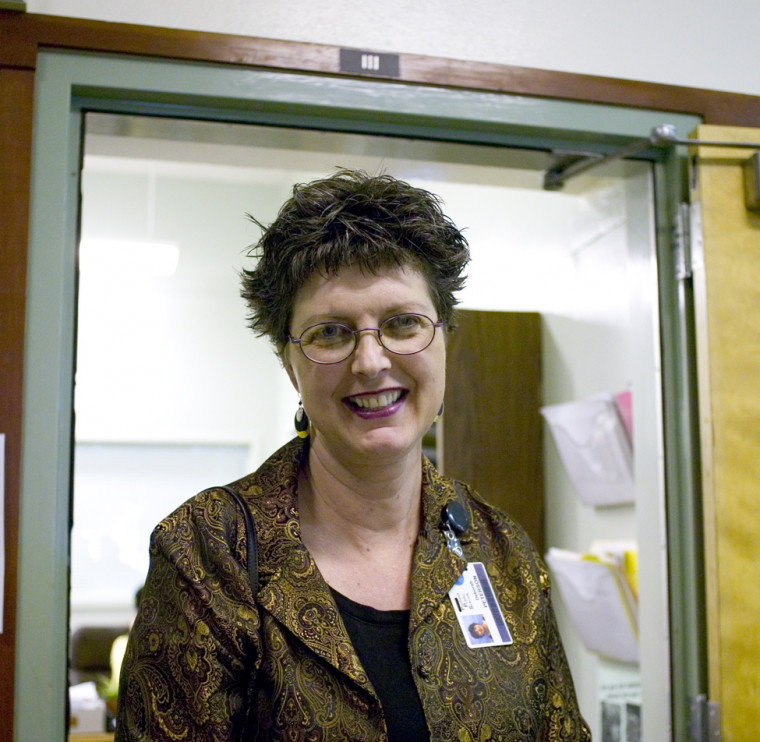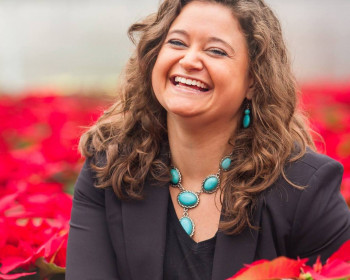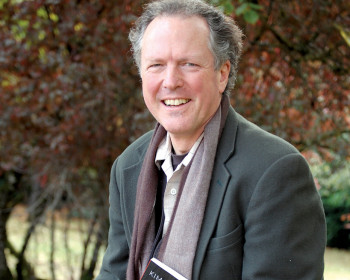Doctoral student sets out to strengthen Oregon public schools
Open gallery

Deborah Peterson is one of 279 students who celebrated commencement on June 5, 2011. Peterson, a former principal at Roosevelt High School in Portland, earned a doctorate in education and has accepted a teaching position at Portland State University. The ceremony featured an address by Stephen Krashen, a linguist, educational researcher, and activist.
In the following interview, Peterson talks about the challenges facing teachers, students of color, and the politics of education.
It’s been recently reported that more than half of Oregon’s students don’t graduate in four years. How would you distill the essence of the problem?
The essence of the problem is the school system fails to meet youth’s needs.
Your dissertation focuses specifically on Latino student success in public schools. What are the unique challenges that these students face that a general public may not fully comprehend?
The general public may not understand how several factors influence the academic outcomes of Latino youth in Oregon. Latino students thrive when schools 1) have high expectations; 2) provide a caring, personalized, motivating environment that celebrates students’ cultural backgrounds; 3) provide rigorous courses such as AP courses with academic support; 4) use instructional techniques that engage students; 5) communicate as often as weekly with families about their student’s progress, using both Spanish and English; and 6) develop an inclusive, multicultural community in which youth of all races and ethnicities are celebrated and nurtured.
Schools have control over these unique challenges, and it’s encouraging that several schools in Oregon are model schools for educating Latino youth. Despite the amazing outcomes of these schools, many Latino youth face challenges in schools where little is expected of Latino youth and our youth become disillusioned and disenfranchised. Many face additional challenges once outside model Oregon schools, like the high cost of college, the ability to obtain scholarships and work permits, and discrimination in housing, the legal system, and employment.
Update: Peterson will be presenting research at major national conferences throughout 2011 and 2012, including the University Council for Educational Administration annual convention, the Hawaii International Conference on Education, and the annual meeting of the American Association of School Administrators. Her recent research includes the following papers: “Latino student success in high school: Why the ethics of caring, accountability, academic support, and inclusive communities matter,” “Equity: Preparing Future School Leaders to Ensure Racial, Ethnic, Linguistic, and Socio-Economic Equity in Education,” and “Schools Where Latino Students Thrive: Cost-effective, innovative strategies that work.”
You spent many years in the classroom before moving into education administration. What did you find most rewarding and most challenging about teaching?
As a teacher, I found the abundant energy, curiosity, enthusiasm, and hope that my students brought to each and every day a huge reward. Challenges then, as now, included teaching 150 students a day; youth who allowed adults to convince them they lacked potential; a system that provided for the needs of adults rather than the needs of youth; and a system that ensured some groups of students succeeded while other groups continually failed. However, the reward of working with students who went on to exceed their and their families’ wildest expectations has brought me renewed invigoration every day.
I am friends with my high school choir teacher who believed in me even as my counselor denied me the opportunity to take the PSAT, as well as with students whom I taught as far back as 30 years ago and as recently as two years ago. Despite our generational, racial, ethnic, gender, and linguistic differences, we have all developed a friendship based on a common belief in social justice through education.
When you read headlines, you can’t help but think that educational leadership is just as much about politics as it is about expertise in education. Do you agree with this assessment?
Exceptional educational leadership requires political skill and educational expertise but also integrity. It is exciting and encouraging when exceptional educational leaders successfully navigate the political landscape of public education, resulting in increased outcomes for youth living in poverty, English Language Learners, youth of color—and all youth!
Unfortunately, there will be times when organizational politics interfere with focusing on what is best for youth and the chasm between what is politically expedient and what is educationally appropriate provides the opportunity for what Hendricks and Ludeman call an “integrity stand.” They write, “One person’s stand for integrity will have a ripple effect. It will cause some people to move toward integrity, others to resist it. But the power of an integrity stand cannot be denied. You cannot ignore it.” Educational leaders have an opportunity to model integrity for students, teachers, families, and the larger educational community, making our world a more just place in the process.
What have taken from your own educational experience at Lewis & Clark that you think has been useful to you or will be useful to you in your own work as a teacher of teachers at PSU?
My doctoral committee at Lewis & Clark consisted of three women who were intellectually demanding while also providing exceptional support and encouragement. Professors Carolyn Carr, Alejandra Favela, and Mollie Galloway were particularly gifted at posing rigorous questions, suggesting additional resources, soliciting divergent perspectives, and offering caring support. At PSU I’ll be preparing future administrators, and I hope to bring this same commitment to equity, rigor, depth of knowledge, perspective, and care to my work with students, colleagues, and the larger educational community.
Graduate Communications is located in room 205 of Rogers Hall on the Graduate Campus.
voice 503-768-6054
fax 503-768-6053
Graduate Communications
Lewis & Clark
615 S. Palatine Hill Road
Portland OR 97219

